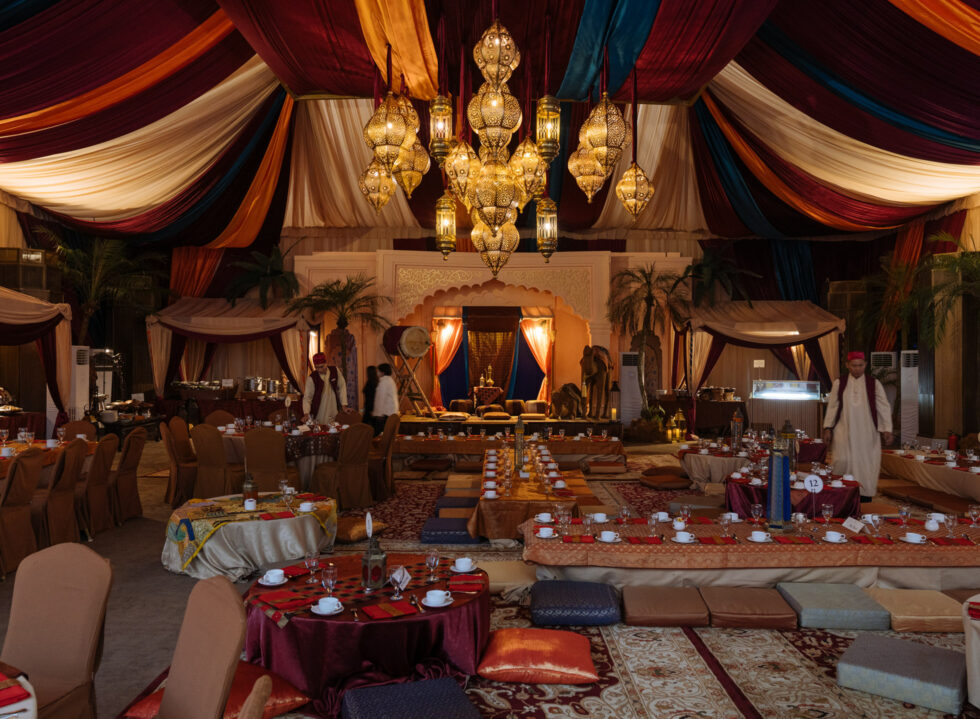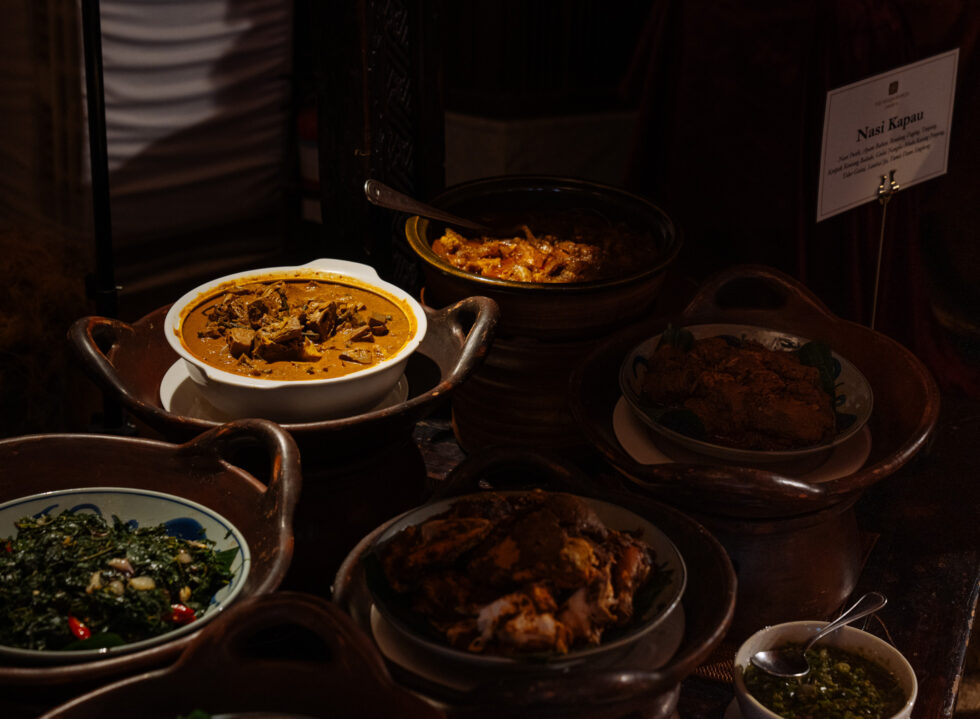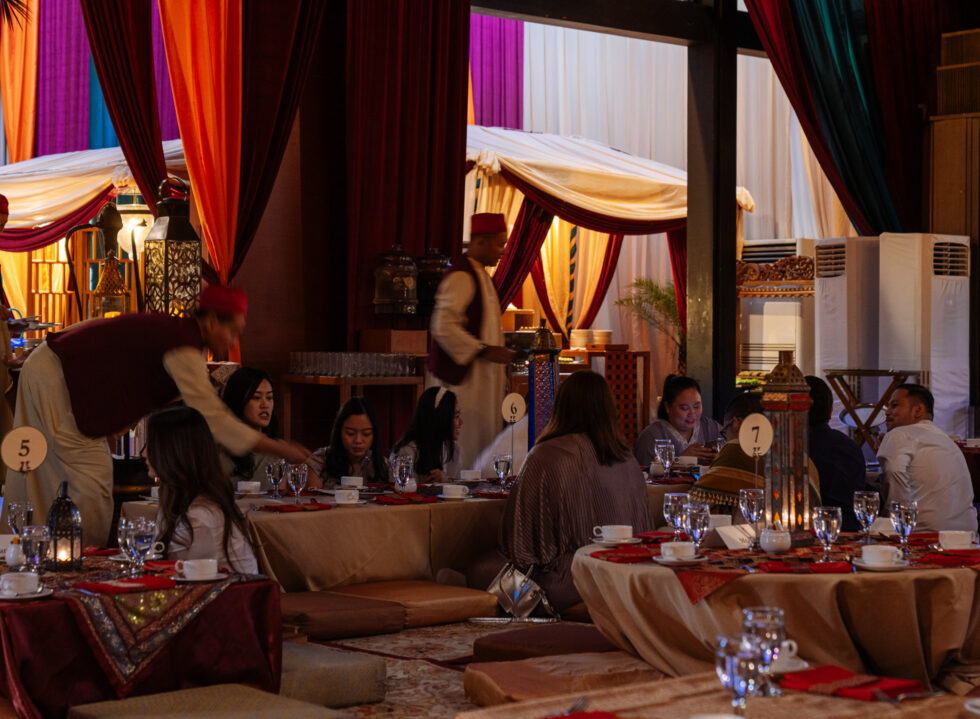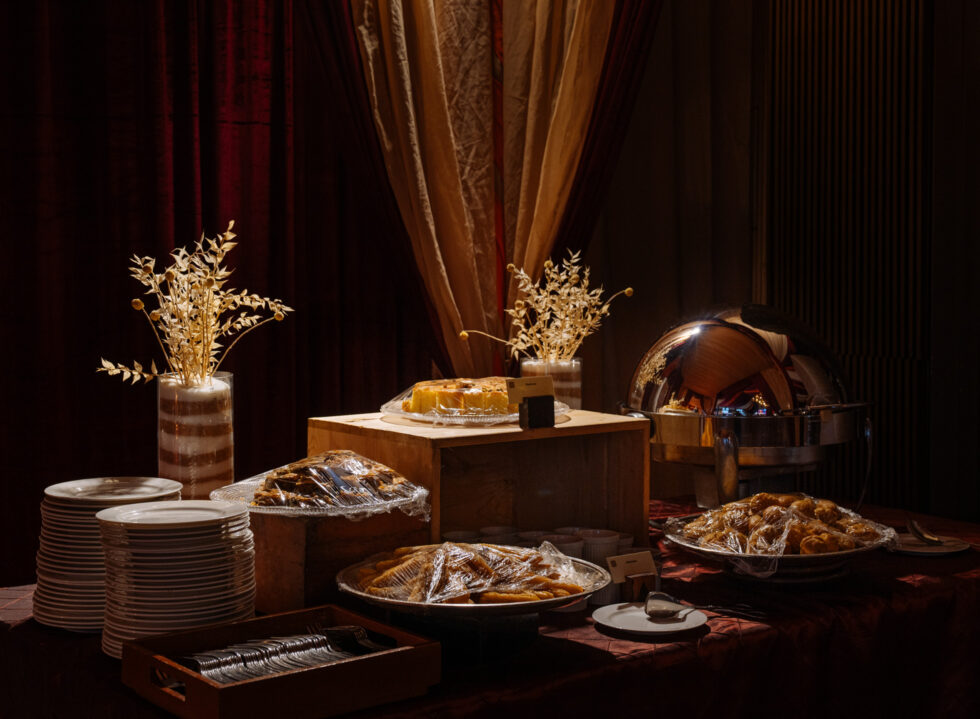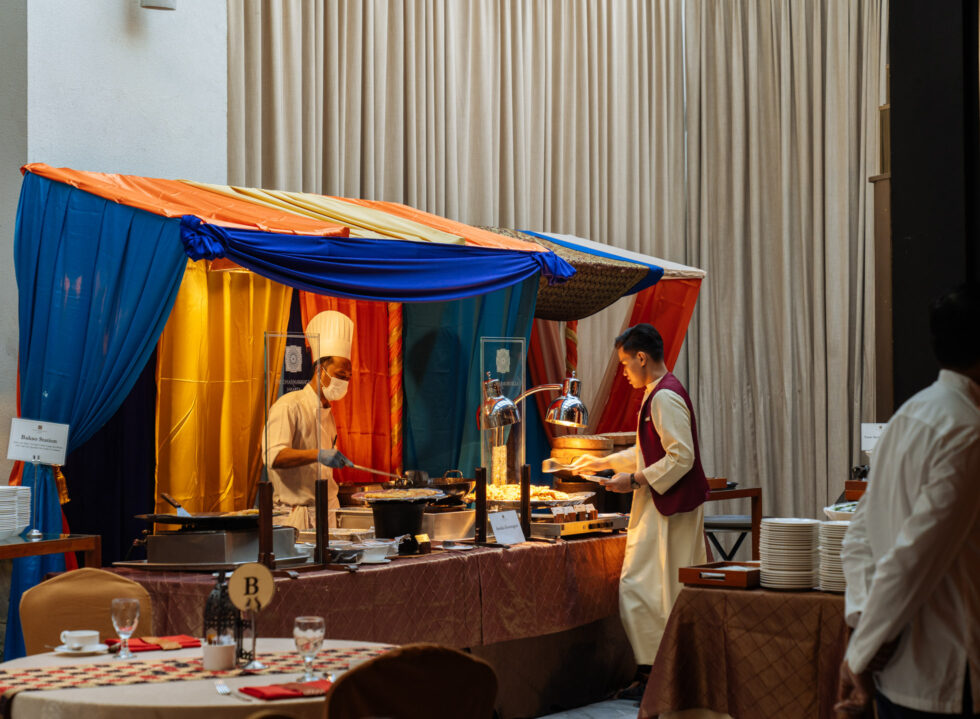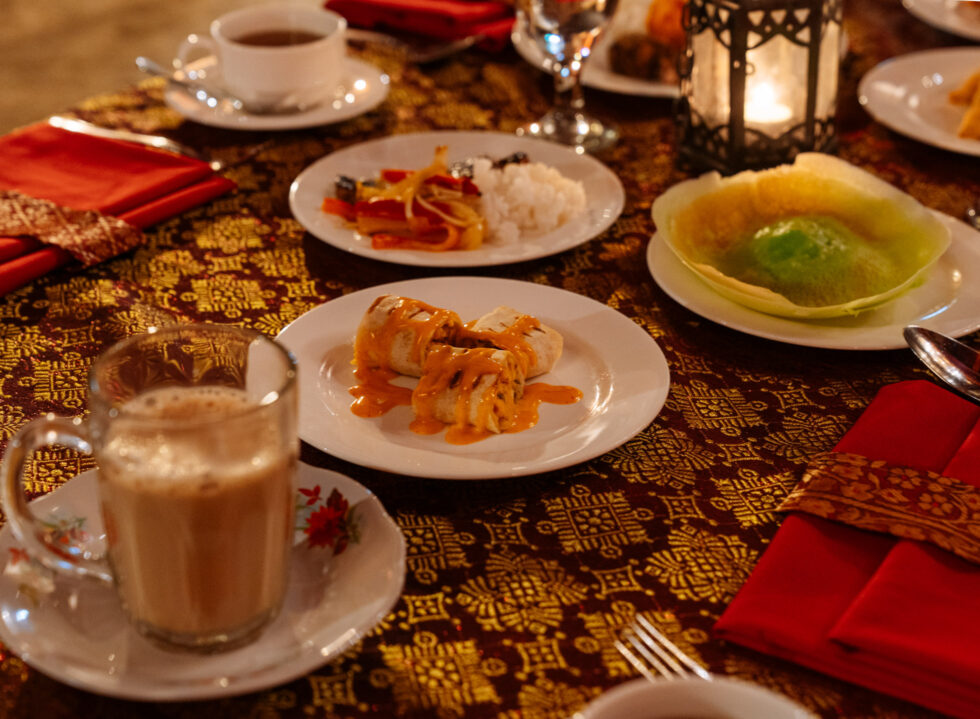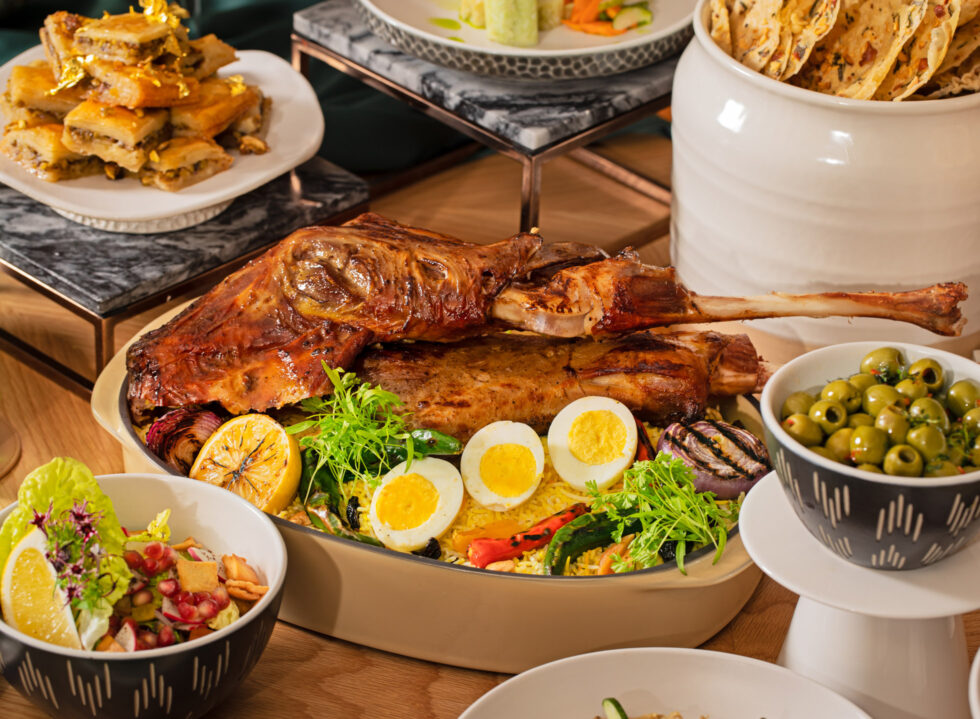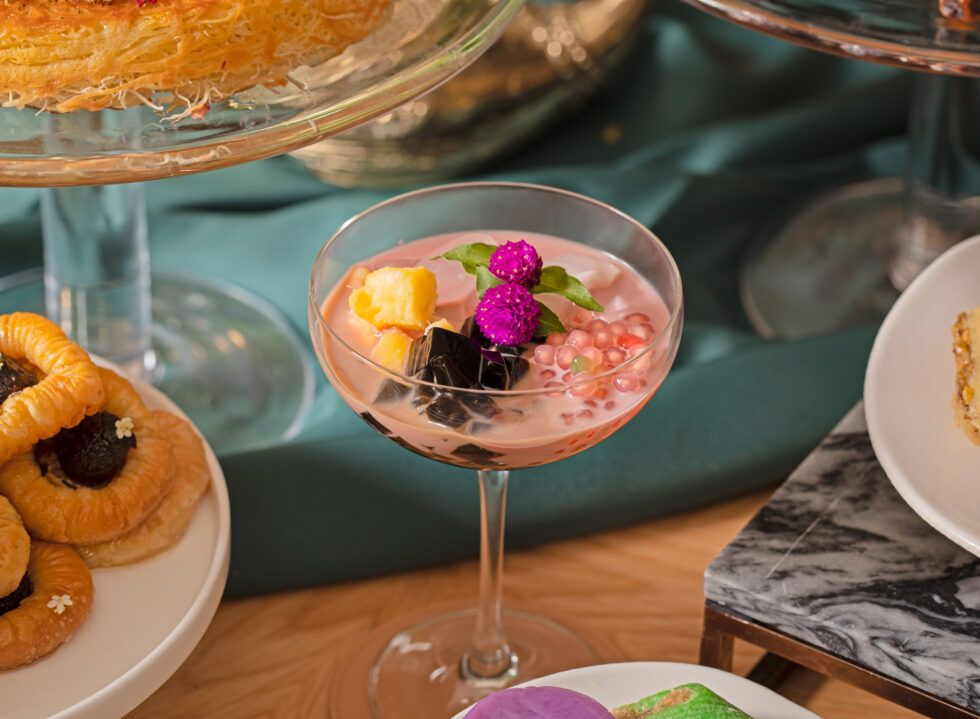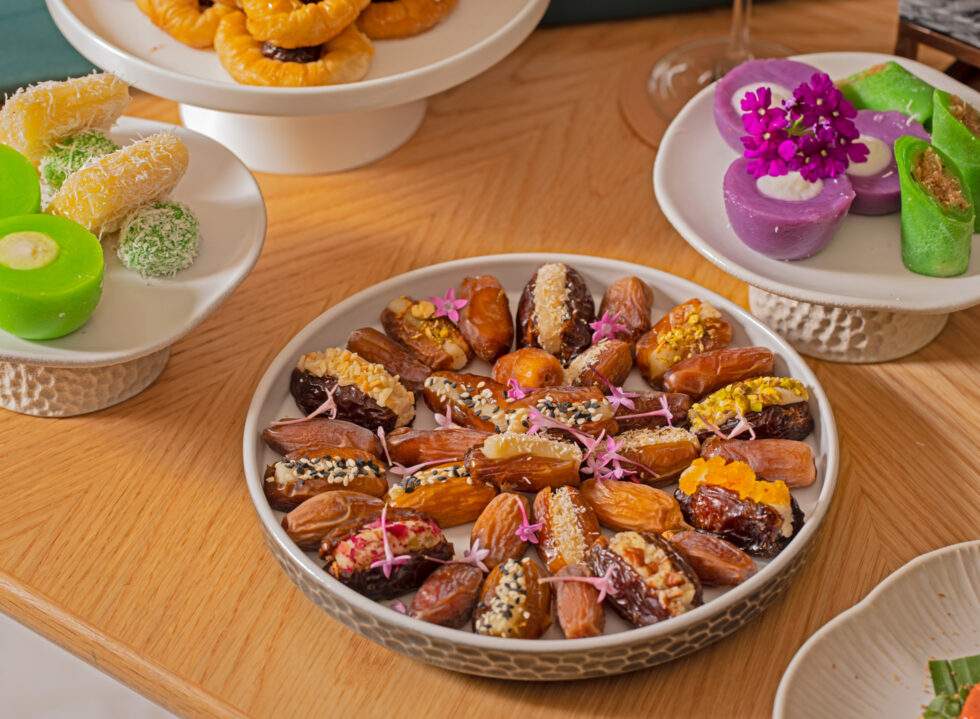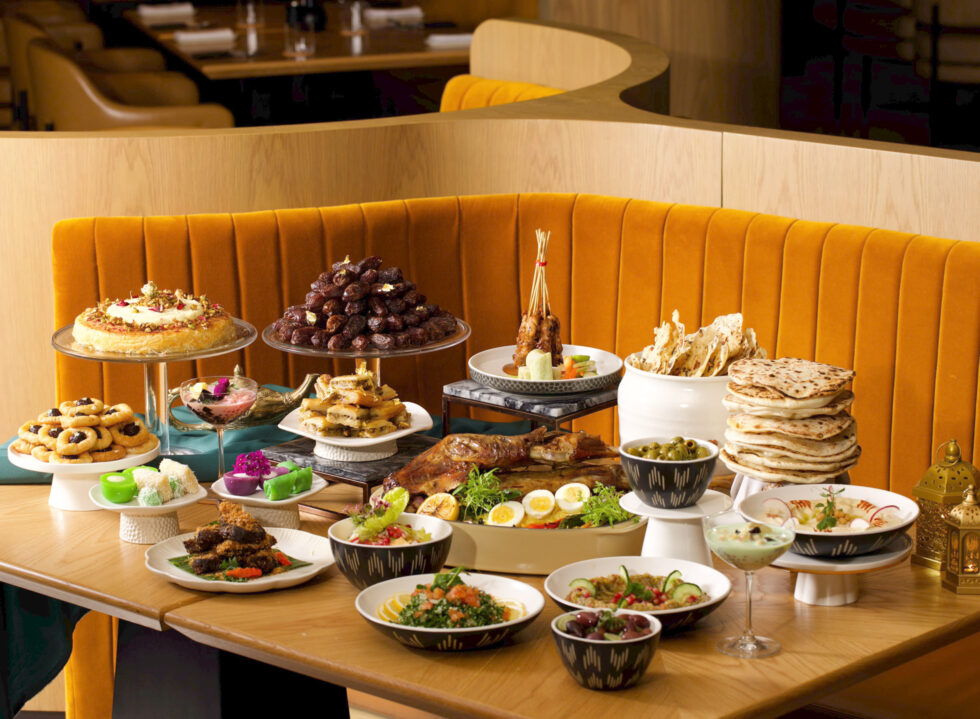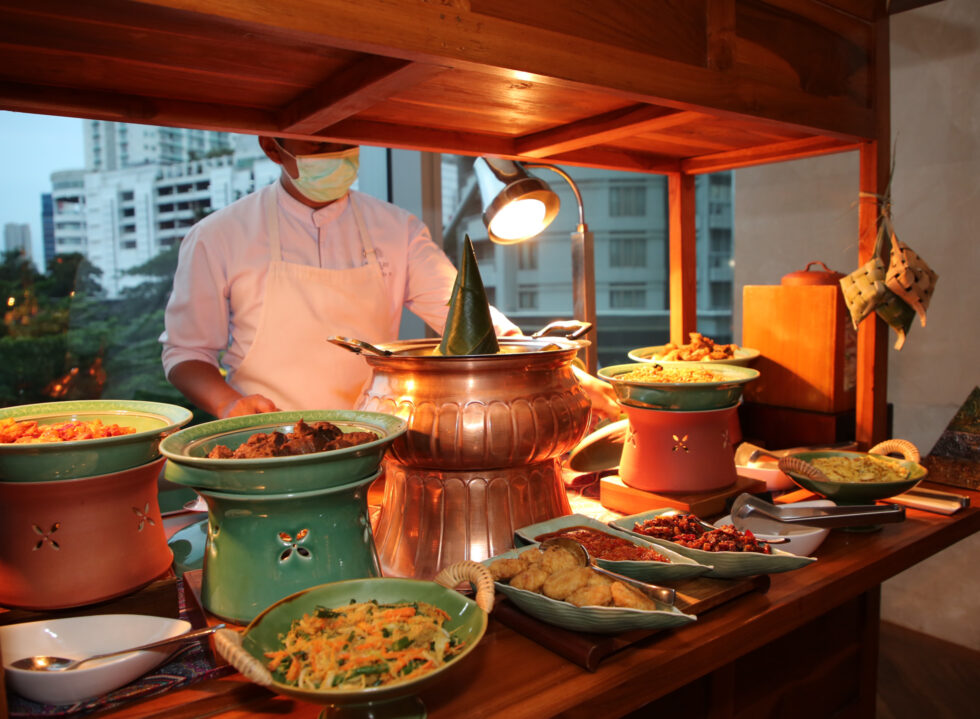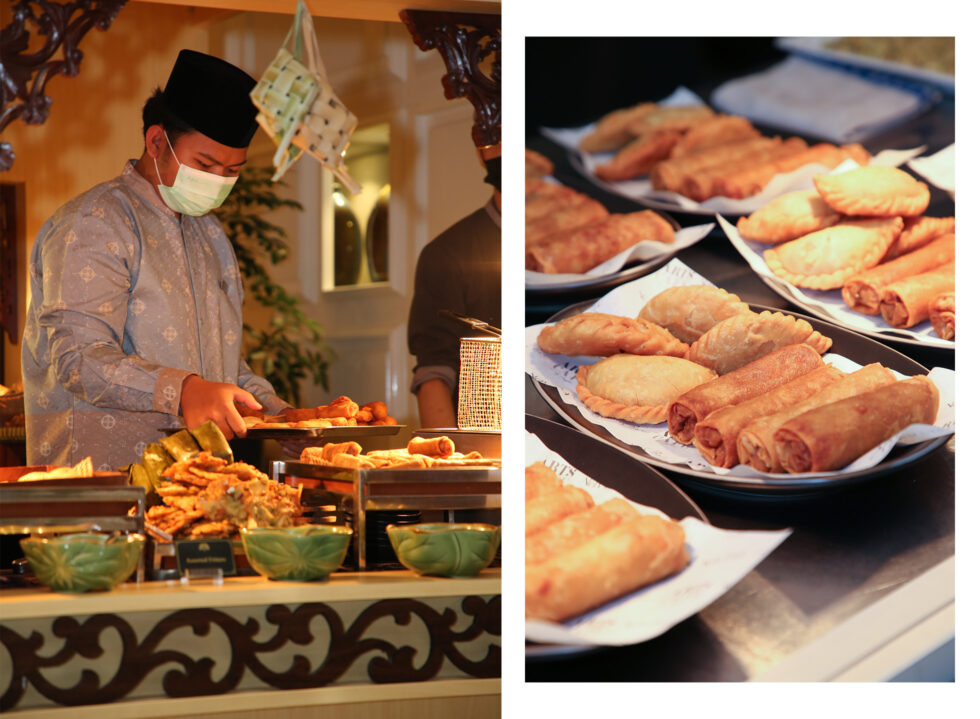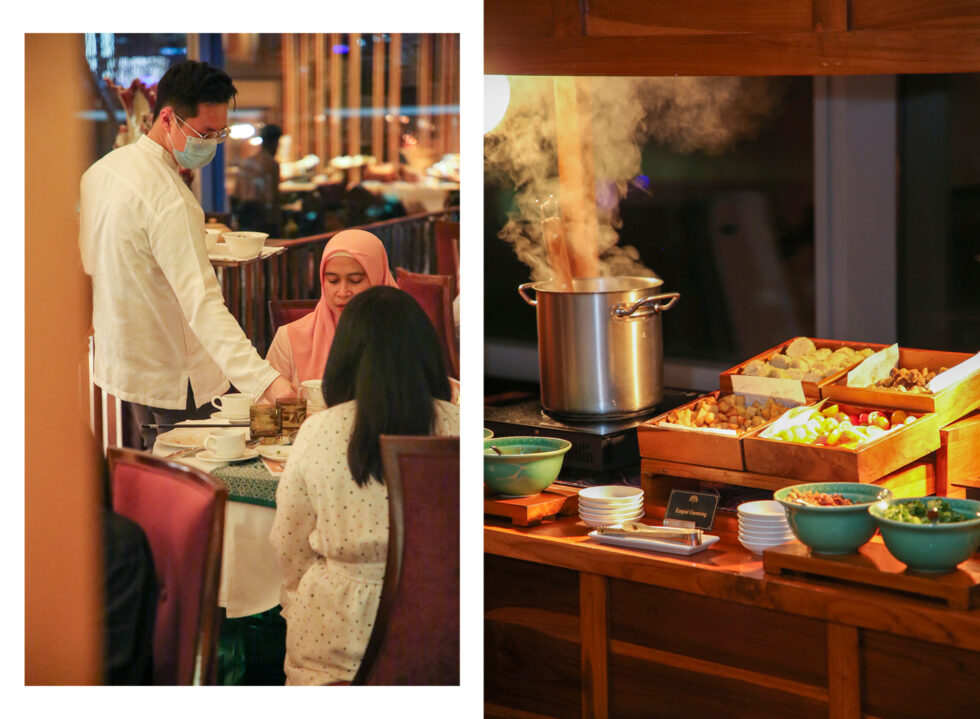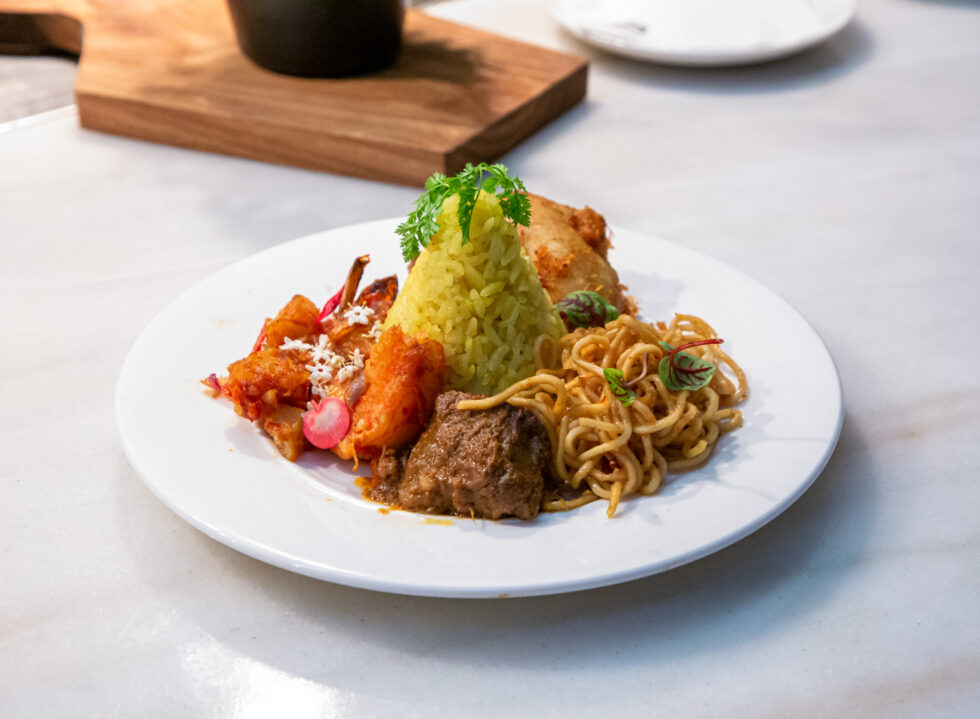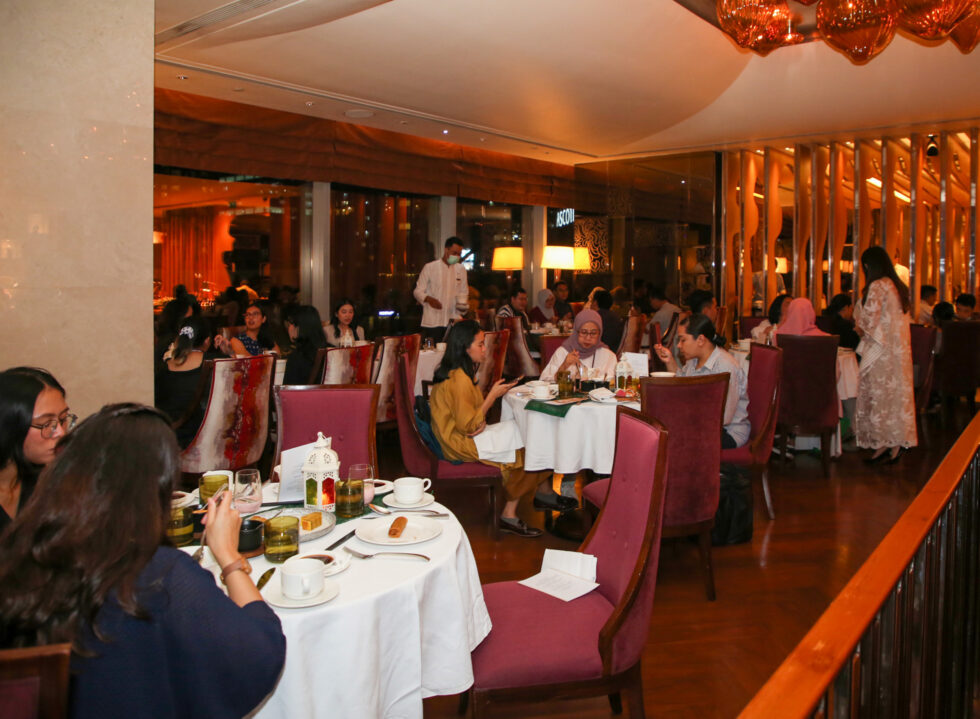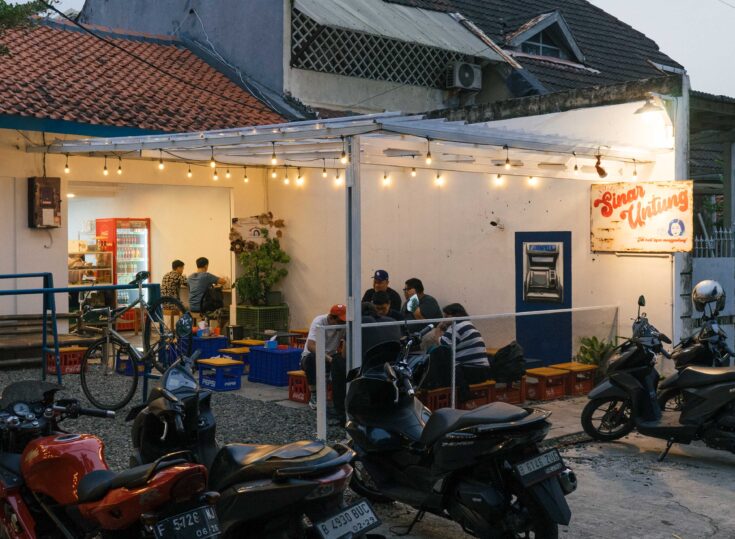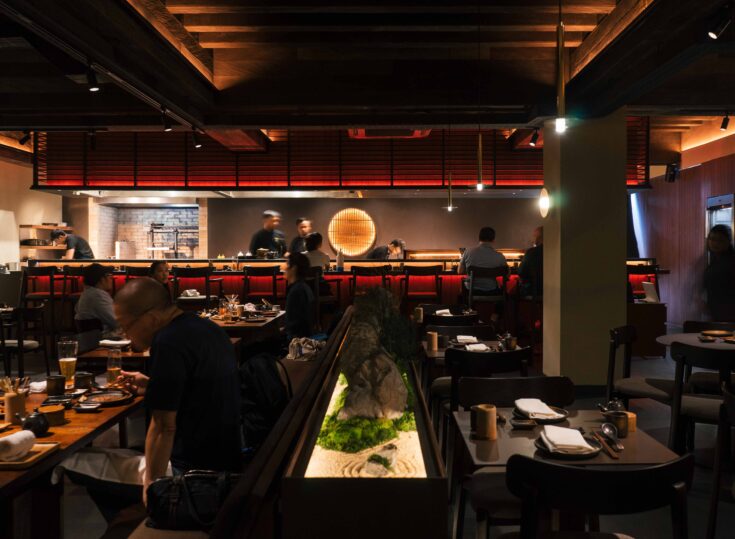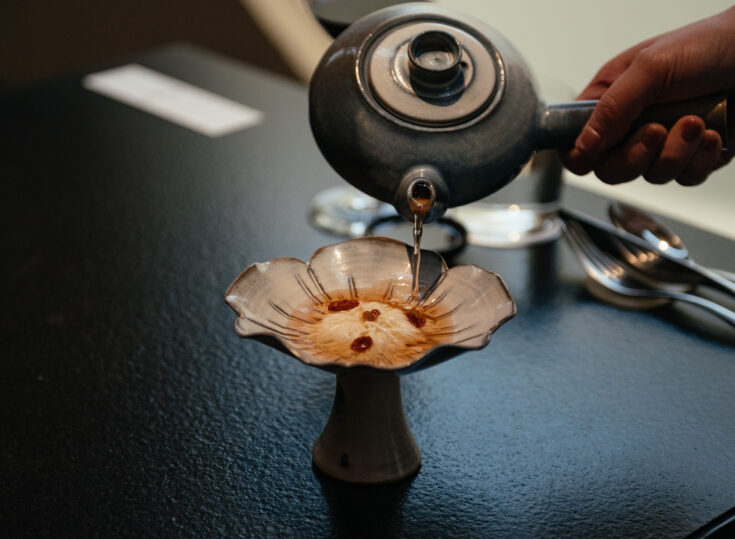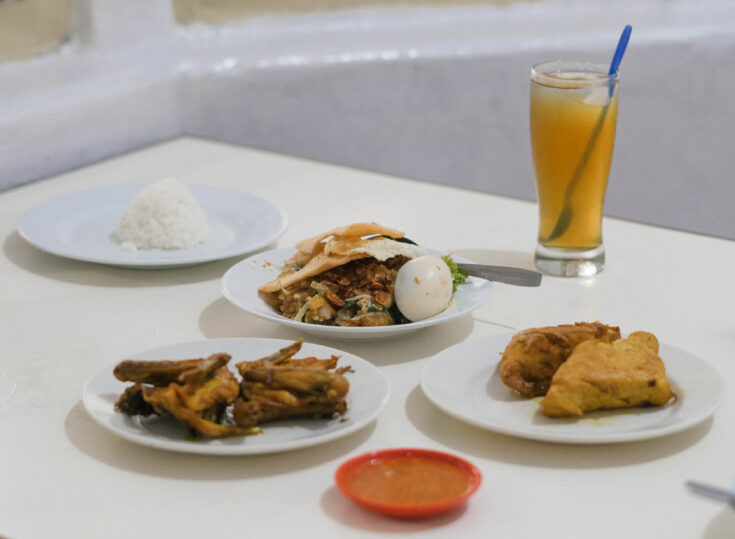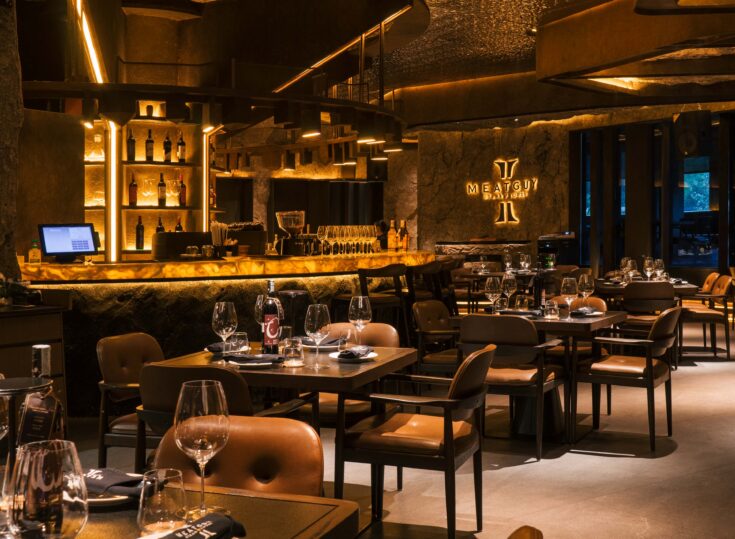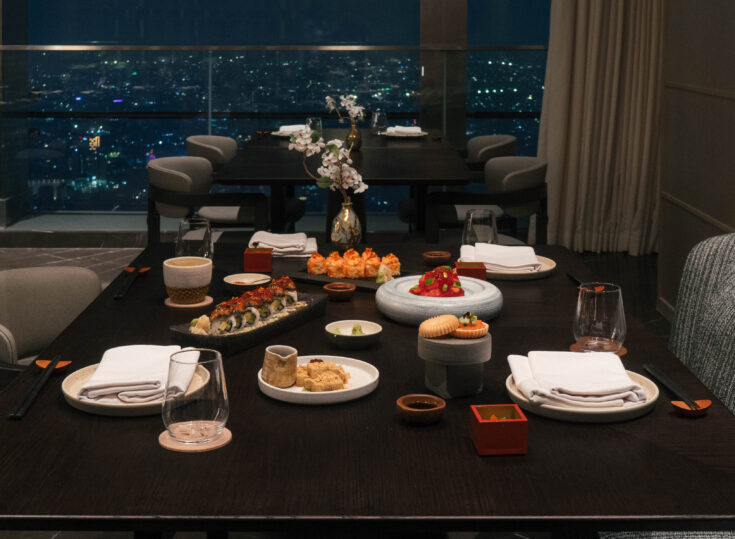“While Ramadan for Muslims is about sacrifice, connecting to God and charity, so much of the month is also about gathering — to pray, to eat and to give to those in need,” wrote NPR’s national correspondent Leila Fadel in her article about how Muslim Americans tried to adapt to pandemic limitations during the 2020 Ramadan. Leila went on to tell the distinct loneliness shared by these Muslim communities and the inadequacy of virtual means to replace the usual gatherings.
Even in Indonesia where Muslims are the majority, the pause enforced by the pandemic felt pronounced. It’s no wonder then that this year, establishments in Jakarta—particularly hotels—are going all out with their iftar, an evening meal ritual to break one’s fast. From serving twists of kolak in a mocktail to transporting diners to a Middle Eastern-inspired dinner party, the comforting delight of gathering over food is one timeless tradition that has always defined the holy month.
A Middle Eastern-inspired banquet
Colourful canopies hang from the ceiling of Nusantara Garden at The Dharmawangsa Jakarta. With ornate, lantern-like chandeliers as the centrepiece, the expansive venue emulates the atmosphere of a Middle Eastern dinner party. Most tables come with floor seatings, where elegantly-dressed ladies to foreign tourists gather and sit on cushions as they indulge in local and international offerings from the hotel’s very own kitchen.
There’s the well-loved iga panggang madu, served hot and succulent with a portion of rice and veggies from a live station to one corner of the hall, side by side with elaborate dishes like lobster rica-rica as well as Middle Eastern comfort bites including the spicy and filling shawarma.
As expected at The Dharmawangsa, local fares are the highlight. On rotation are the famous nasi liwet and nasi kapau, a classic yet refined take on timeless recipes, traditional sticky Javanese cakes jajan pasar and even a cart of kue ape, where the Betawi-style soft pancake with crispy crepe crust and coconut milk centre served fresh and piping hot.
The mood is that of a reunion, as longtime regulars return to their normal routines at the hotel. Without even having to take a lap to check out what is available at the buffet, they can already be seen ordering a teh tarik (milk tea) or another of their favourite picks from the servers garbed in the traditional clothing of the region.
“We used to hold this Middle Eastern-style iftar event regularly at the Bimasena building in the back, but this is the first time we’ve done it since the pandemic. So you can imagine the excitement,” explained Celine Devianty, a representative from the Public Relations team at The Dharmawangsa, noting how diners seem to have settled into their old habits with ease.
A fresh twist to classics
Meanwhile, at The St. Regis Jakarta, this year’s eclectic iftar feast at the hotel’s in-house restaurant Bel Étage marks the very first one hosted at the illustrious hotel since its opening in December last year.
To a backdrop of live music, decking the tables of the glitzy restaurant is an array of local and Arabic-inspired offerings, including the Balinese Lawar, where veggies, coconut and special seasoning come together in a colourful mix; slow-simmered Soto Betawi, a Jakarta classic beef broth dish; a bountiful Whole Lamb Ouzi with rice as well as a selection of hookah and Arabic coffees and teas.
Capturing the attention of diners, the crew at Bel Étage have also found new ways to serve up time-honoured delights. Here, diners get to enjoy kolak, a classic takjil (sweet appetiser for iftar) made of coconut milk, palm sugar and pandanus leaf, in mocktail form.
Creative interpretations aren’t limited to in-house creations, either. From 6 to 16 April, those lucky enough to book a spot at Bel Étage would be delighted to find traditional yet explorative recipes created by the affluent Bali-based restaurant, Nusantara by Locavore; which range from Sate Plecing, skewers of richly-spiced free-range chicken, to the braised-beef dish with sauce, Kalio Sapi—a mouthwatering affair that would no doubt add more fuel to conversations.
A comprehensive experience
Over at Raffles in Kuningan, Ramadan celebrations take over multiple dining establishments within the 52-story hotel. Diners feeling adventurous to tackle more than one spot in one evening can start by breaking their fast at The Writer’s Bar or pool-side at Navina, where a range of takjil signatures such as Rendang & Foie Gras Bun and Ribeye Sate Maranggi decorate an ornate tea tiered tray alongside baklava and a colourful range of jajan pasar.
Elsewhere, focusing on exploring flavours of the nation, Arts Café presents specialities that include timeless comfort dishes like Javanese Nasi Tumpeng, a cone-shaped yellow rice dish surrounded with sides like boiled eggs and spiced tempeh, and the curry-like beef soup, Empal Gentong.
When plates are clean, the stomach full and conversations wind down to intermittent chatters, pictures were taken to commemorate the moment, imbuing the mood with conviviality.
For all the different ways these iftars are brought together, there’s a unifying sense that it’s a long-awaited ritual that Muslim communities everywhere look forward to every year. It goes to show that regardless of what’s on the table, it’s the very act of getting together that fuels this long-standing tradition.
